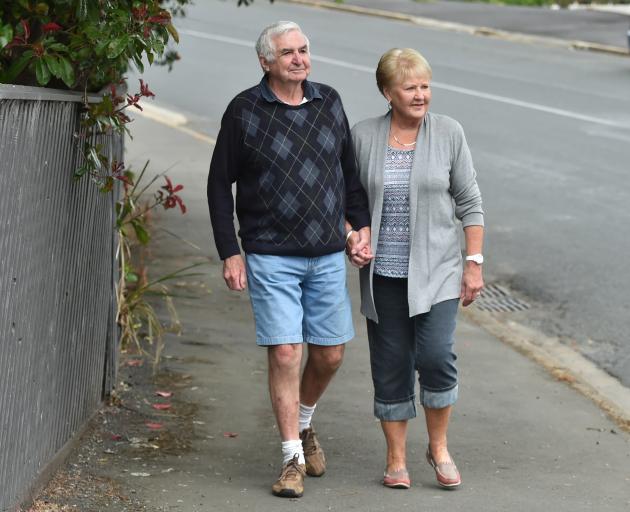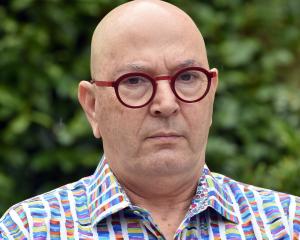When Kevin and Kay Small experienced identical symptoms of fatigue and lethargy, they thought they had eaten too many oysters on holiday.
Their GP suspected it was bowel cancer, and several months later, the couple had surgery on the same day at Dunedin Hospital to remove tumours. But it took a "comedy of errors" to get there, Mr Small said.
The symptoms, including extremely low iron levels, did not fit official criteria for an urgent or semi-urgent colonoscopy. The hospital suggested they take supplements for iron deficiency.
Mr Small credits their "marvellous" GP, Dr Paul Bennett, for pressing their case.
They received letters from the hospital downgrading their priority level from semi-urgent to non-urgent. Just before getting the letter, the couple, concerned by the delay, had rung and "pleaded" with a nurse who assessed them over the phone and booked them in.
"We weren’t on the list at all," Mr Small said of what he had been told by the department when he first rang.
The fatigue was so severe they could barely walk to their mailbox.
The couple contacted the Otago Daily Times yesterday after reading the newspaper’s report of medical student Zoe Windner’s bowel cancer study.

Early data from the study suggests iron deficiency is often ignored as a symptom.The couple had returned from a holiday in South Australia in March last year when they started to experience severe fatigue.
"For the life of me we couldn’t think what might have caused it."
They even suggested they had eaten too many oysters on holiday, which their GP quickly dismissed.
Their age — they are both in their seventies — and symptoms made the GP suspect the cause was bowel cancer.
The colonoscopies were performed on June 21 and June 23 and they had surgery on August 3. Health staff were astounded by the bizarre coincidence.
"I’ve never heard the same comment so many times," Mrs Small said.
Mr Small joked to the surgeon, John Woodfield, he need not change his gown between surgeries.
Once they managed to get in, the hospital was first-rate, they said.
Mrs Small’s tumour was smaller than her husband’s, and she had the all-clear.
Clinicians were keeping an eye on Mr Small, who has regular blood tests.
The pair are grateful they did not require chemotherapy.
After 52 years of marriage, they are closer then ever after the experience.
They were in upbeat spirits yesterday when the ODT visited, but remain upset about what they went through.
"What it’s saying is - the national guidelines - if you’re over 70 you’re not worth worrying about - they’re too old."
It felt like being "thrown on the scrap-heap".
"We feel very sorry for people who might have the same symptoms as us and don’t get a fair deal," Mr Small said.
Southern District Health Board gastroenterology clinical leader Jason Hill said yesterday he could not comment on individual cases.
He said doctors took iron deficiency seriously as a symptom of cancer.
"Iron deficiency anaemia is included in these criteria because it is associated with occult bleeding from the gastrointestinal tract.
"However, compared to rectal bleeding with iron deficiency or a palpable tumour, iron deficiency anaemia in isolation is less specific for bowel cancer so is a non-urgent indication.
"In fact in many cases we do not find bowel cancer in those referred for this indication," Dr Hill said.
He said being graded non-urgent did not mean patients would not receive a colonoscopy.
"Fortunately, as a result of the teams’ hard work, in 2017 the wait list for urgent colonoscopy was less than 14 days and the non-urgent wait list was less than 28 days."

Advertisement













